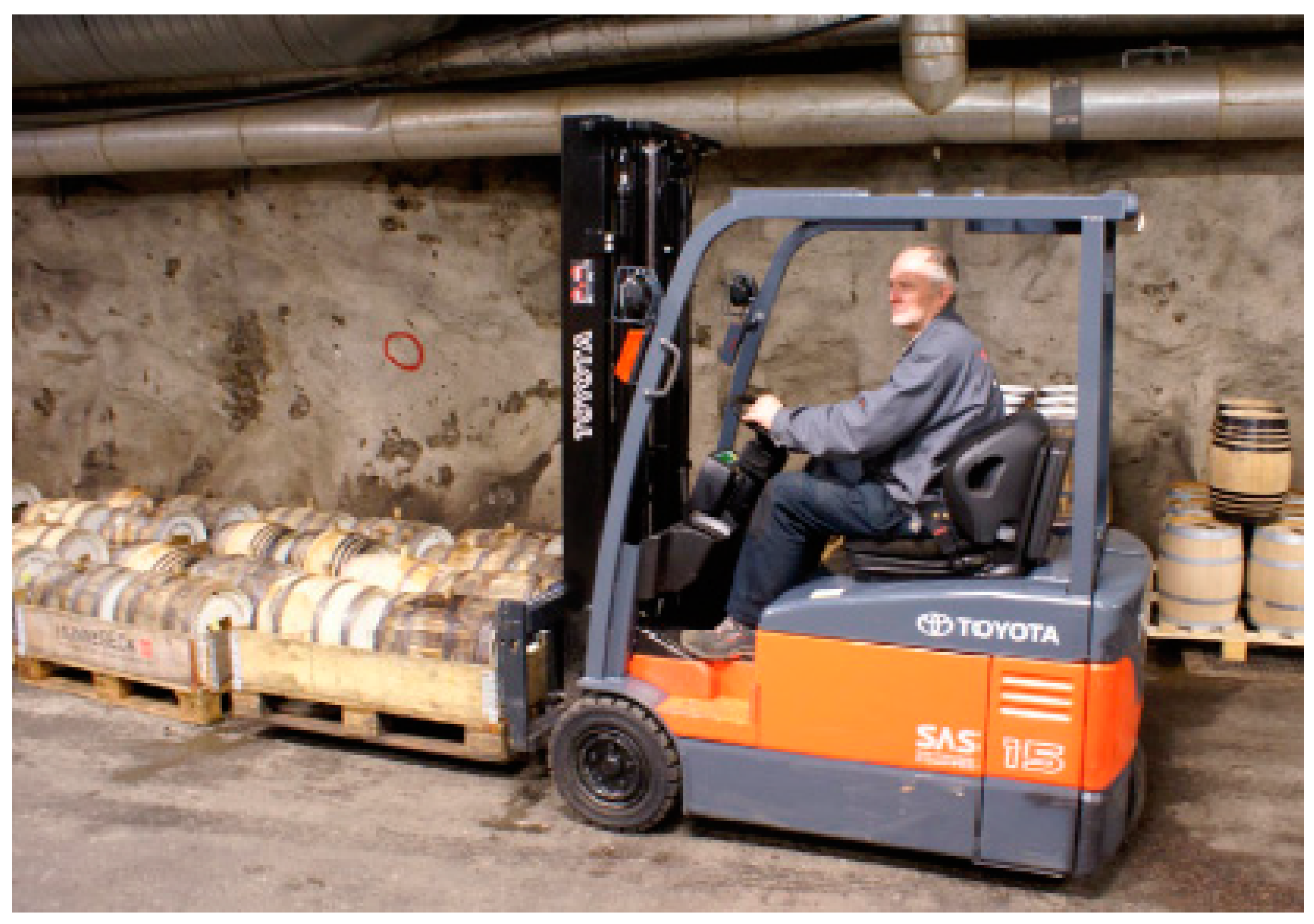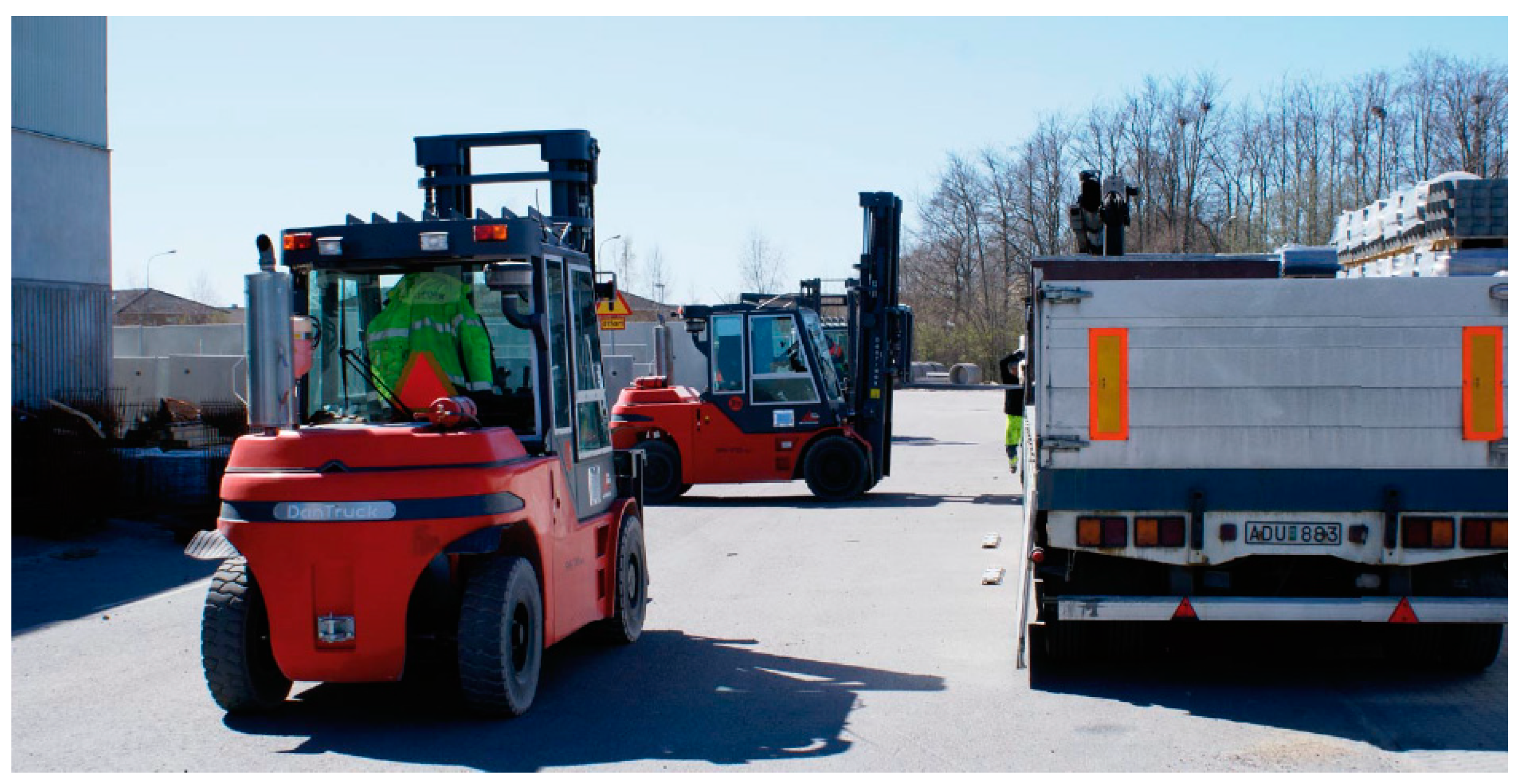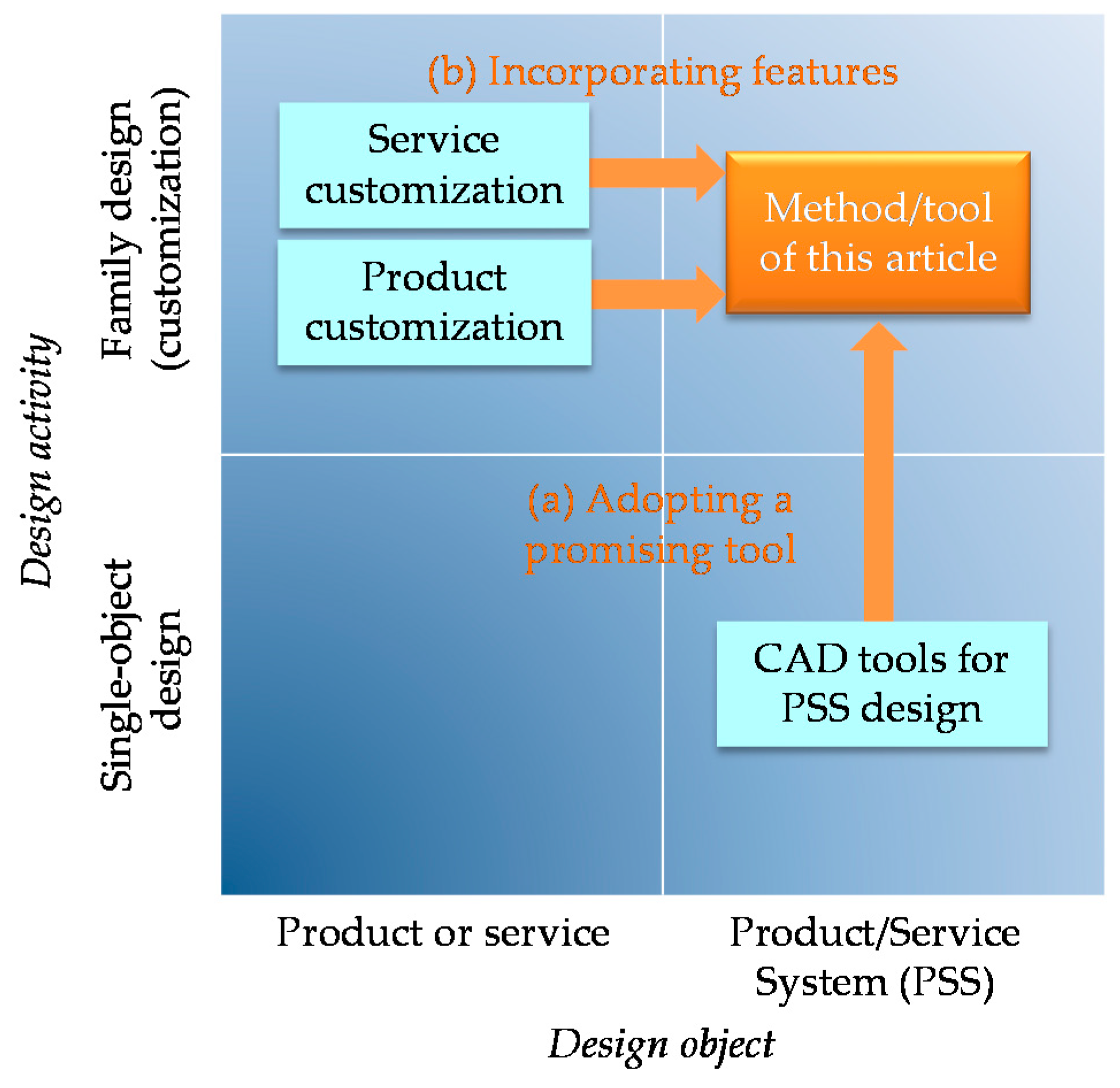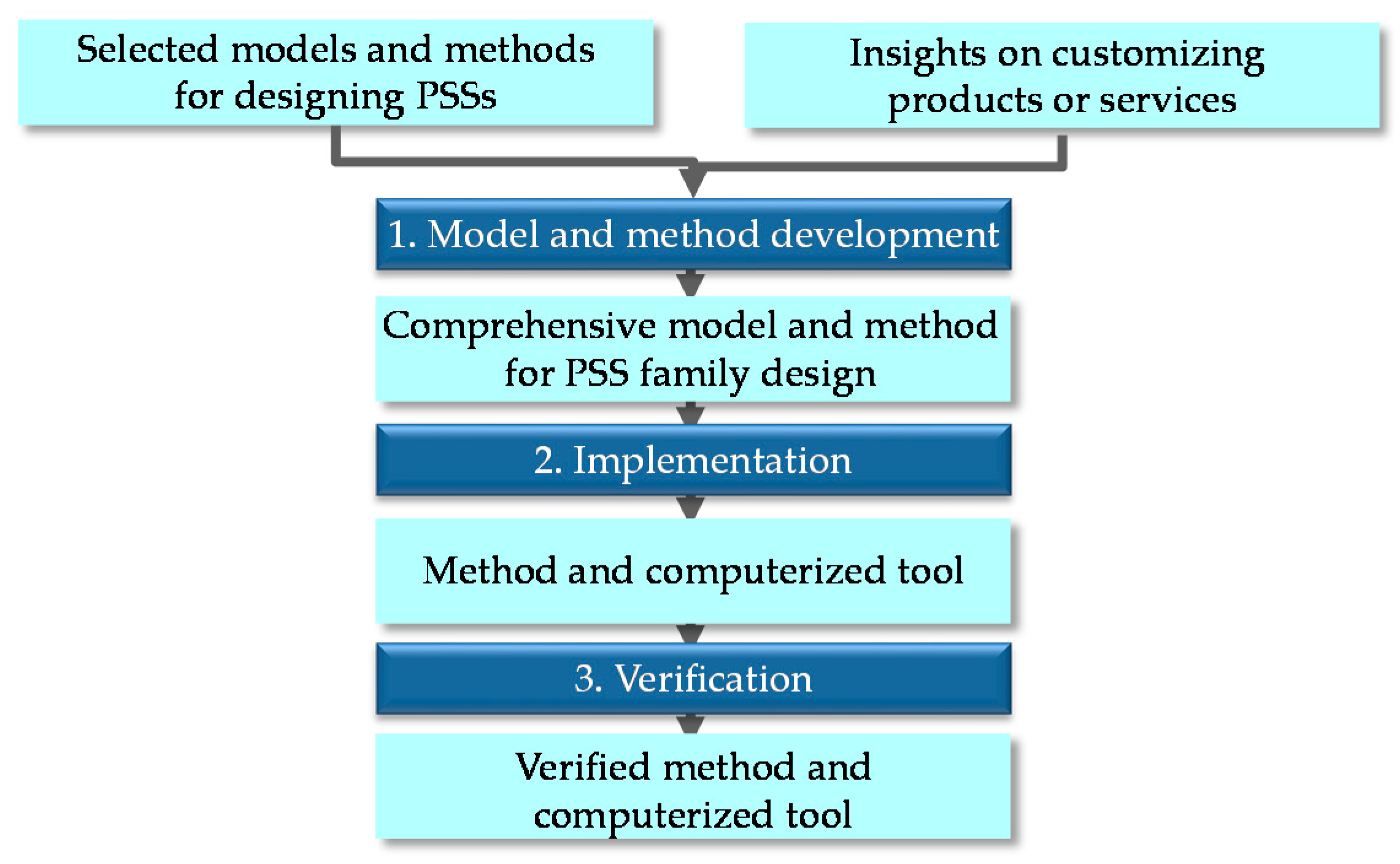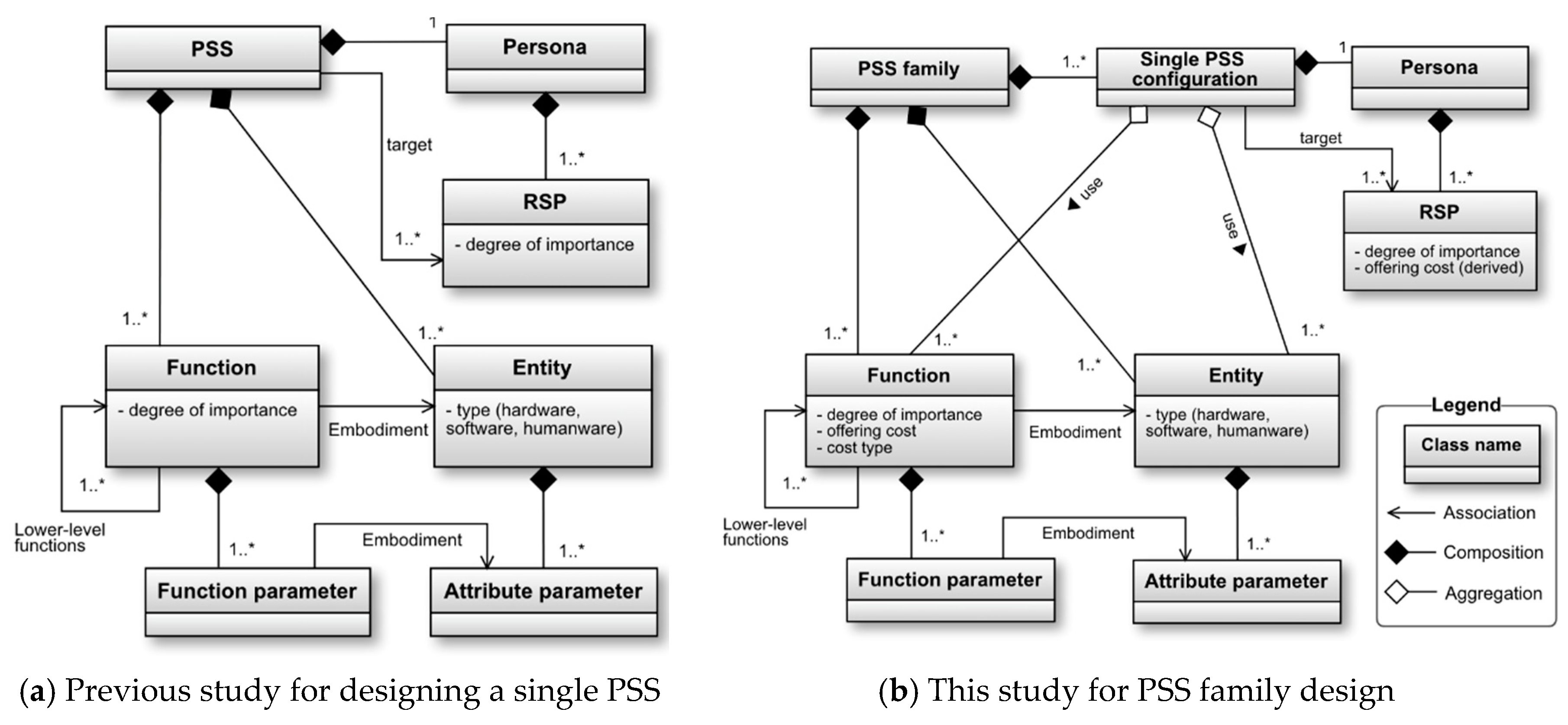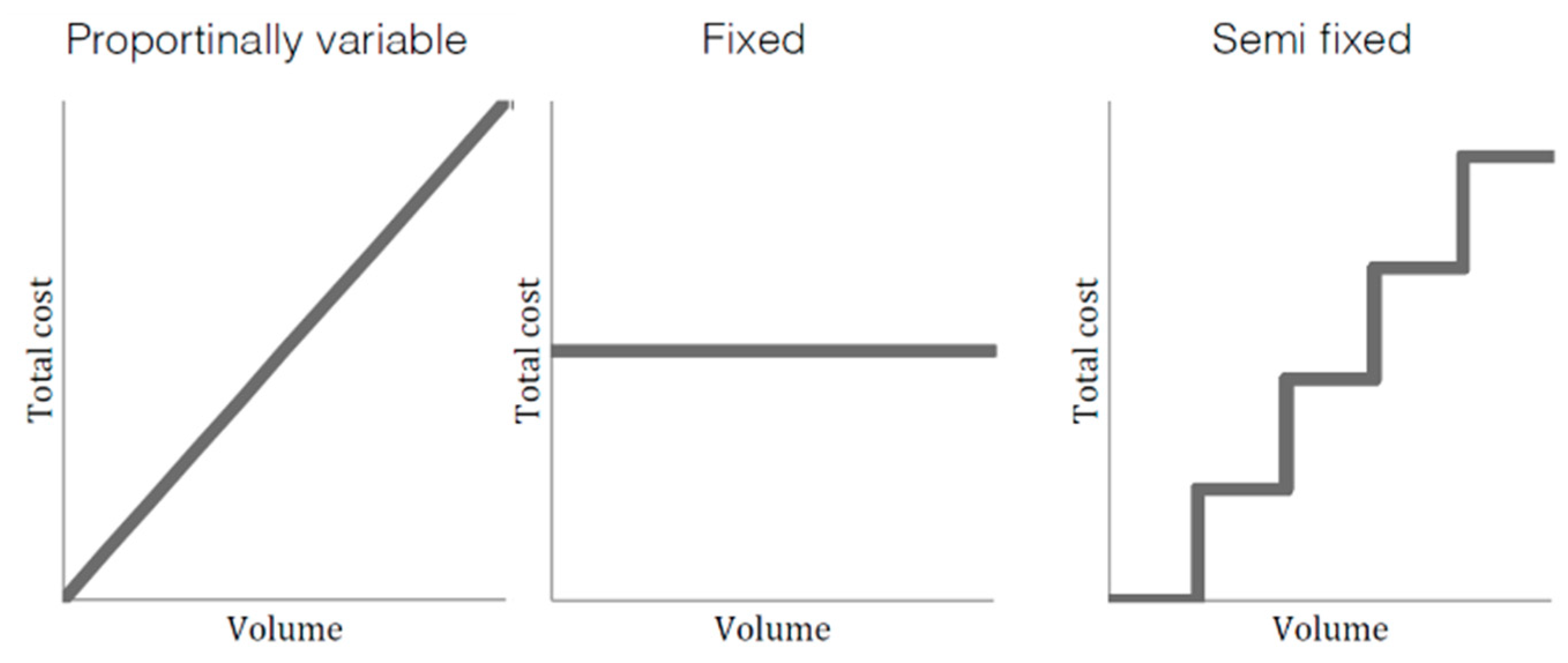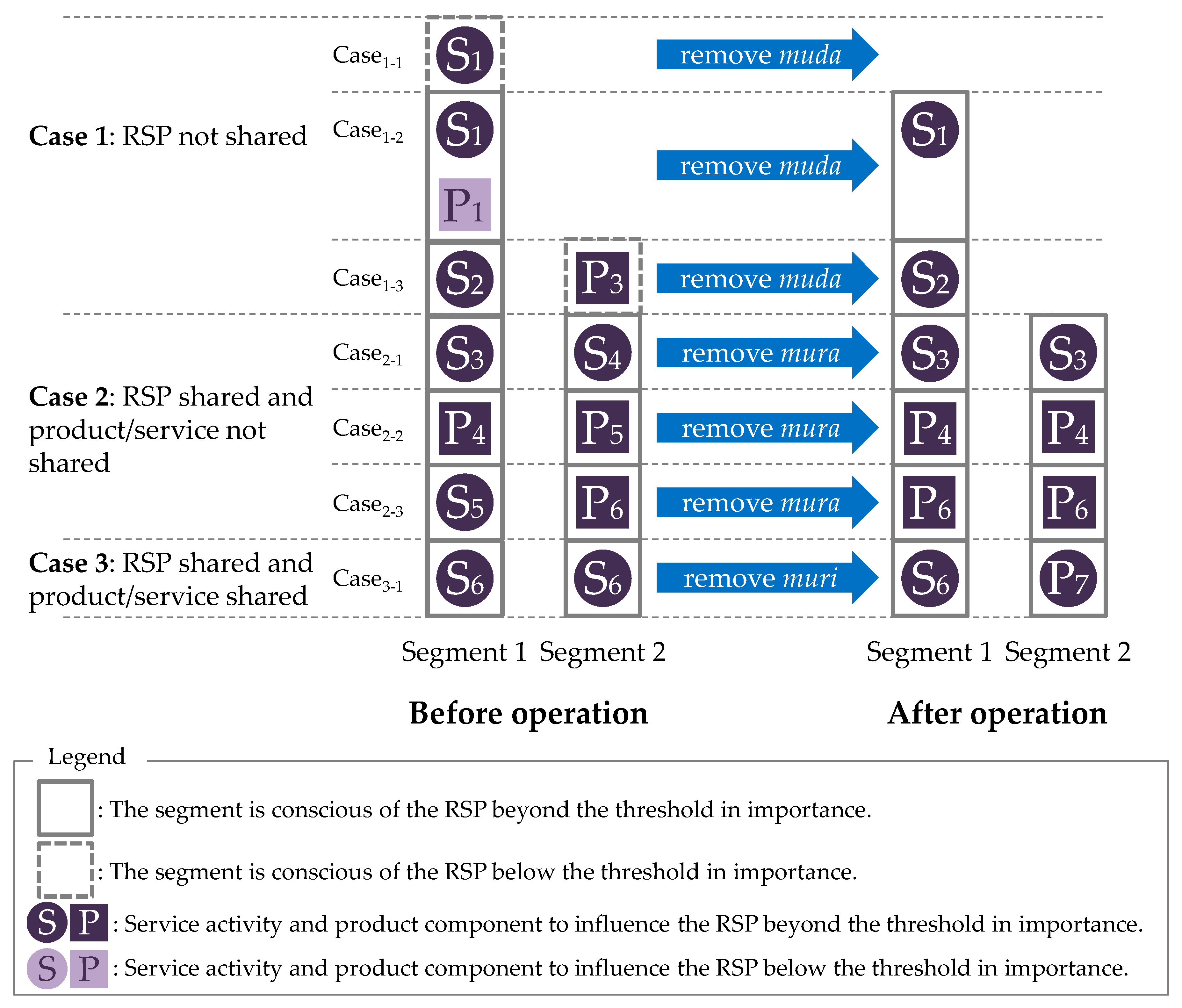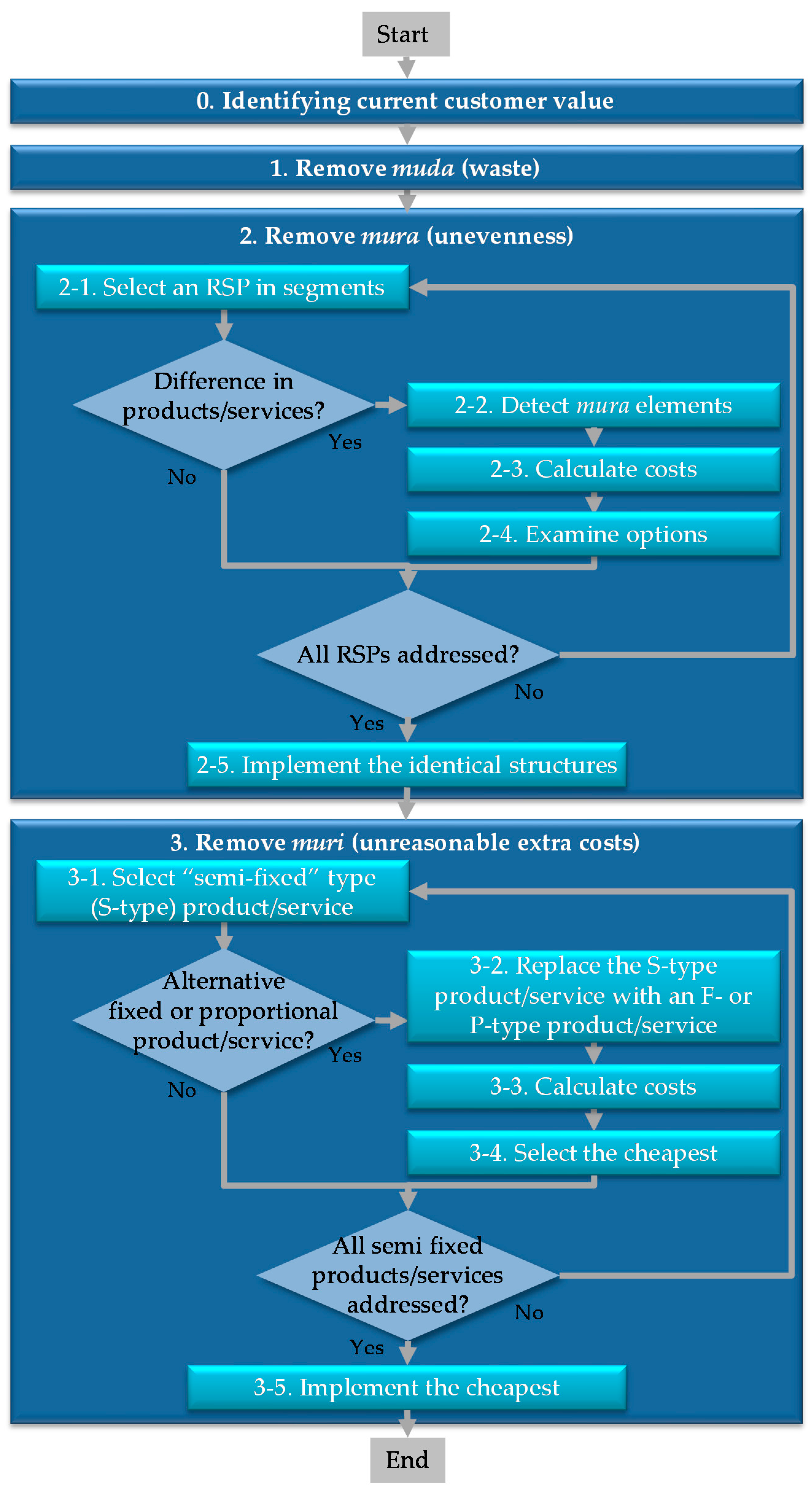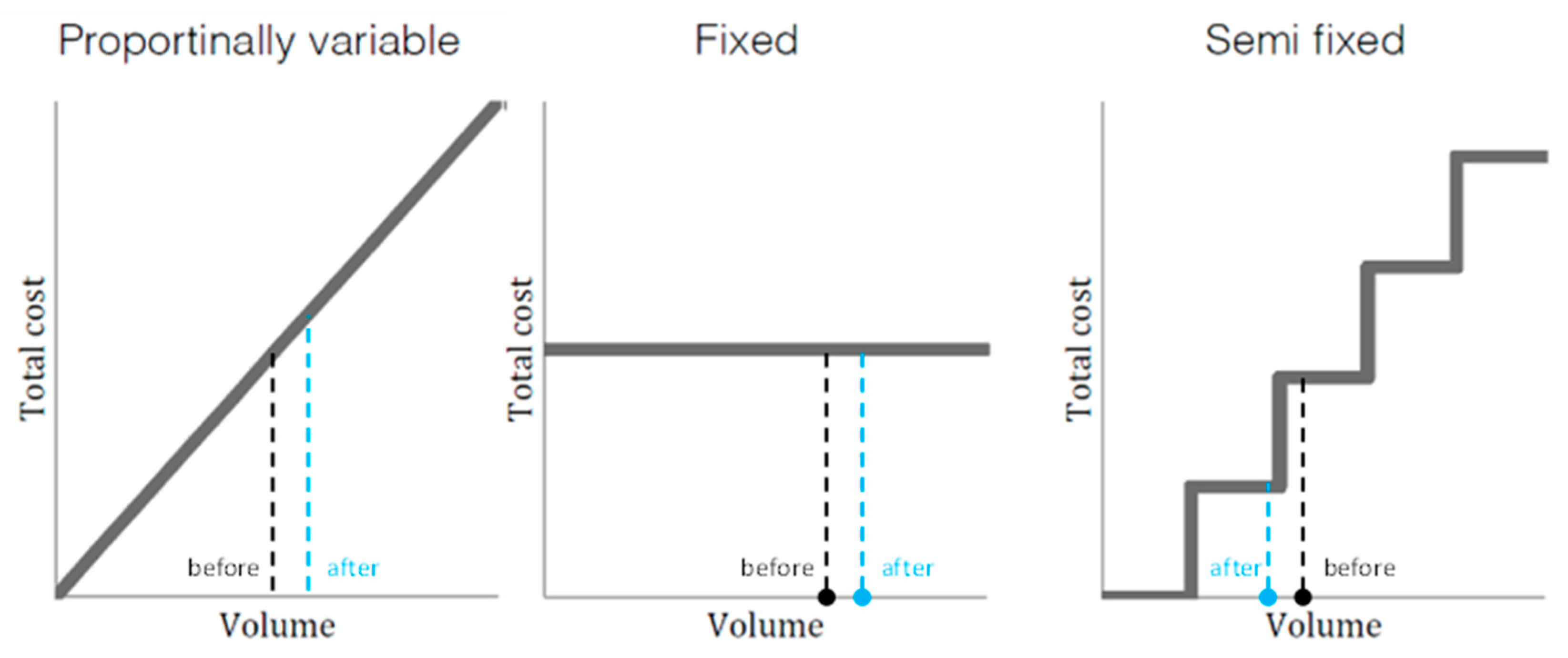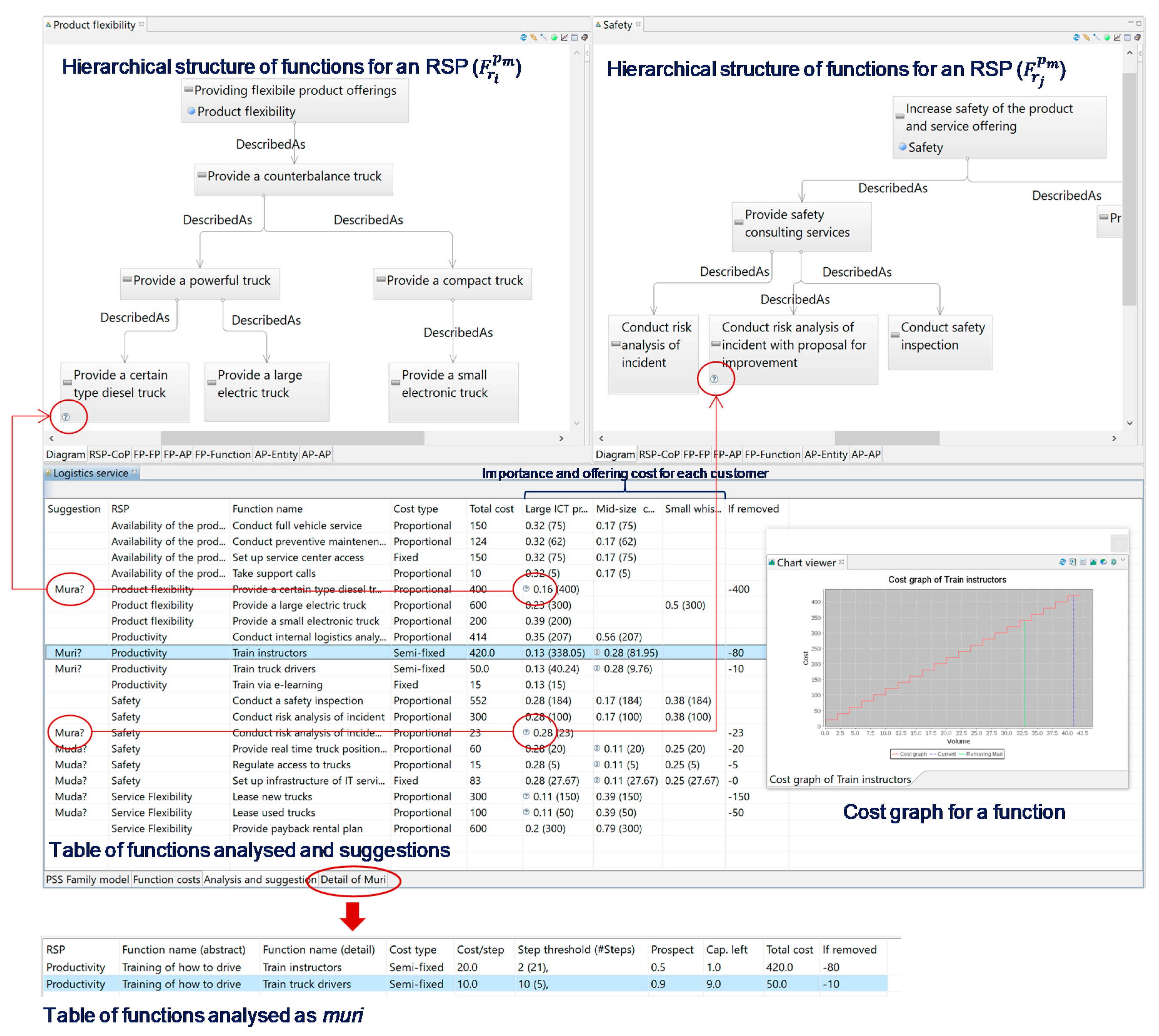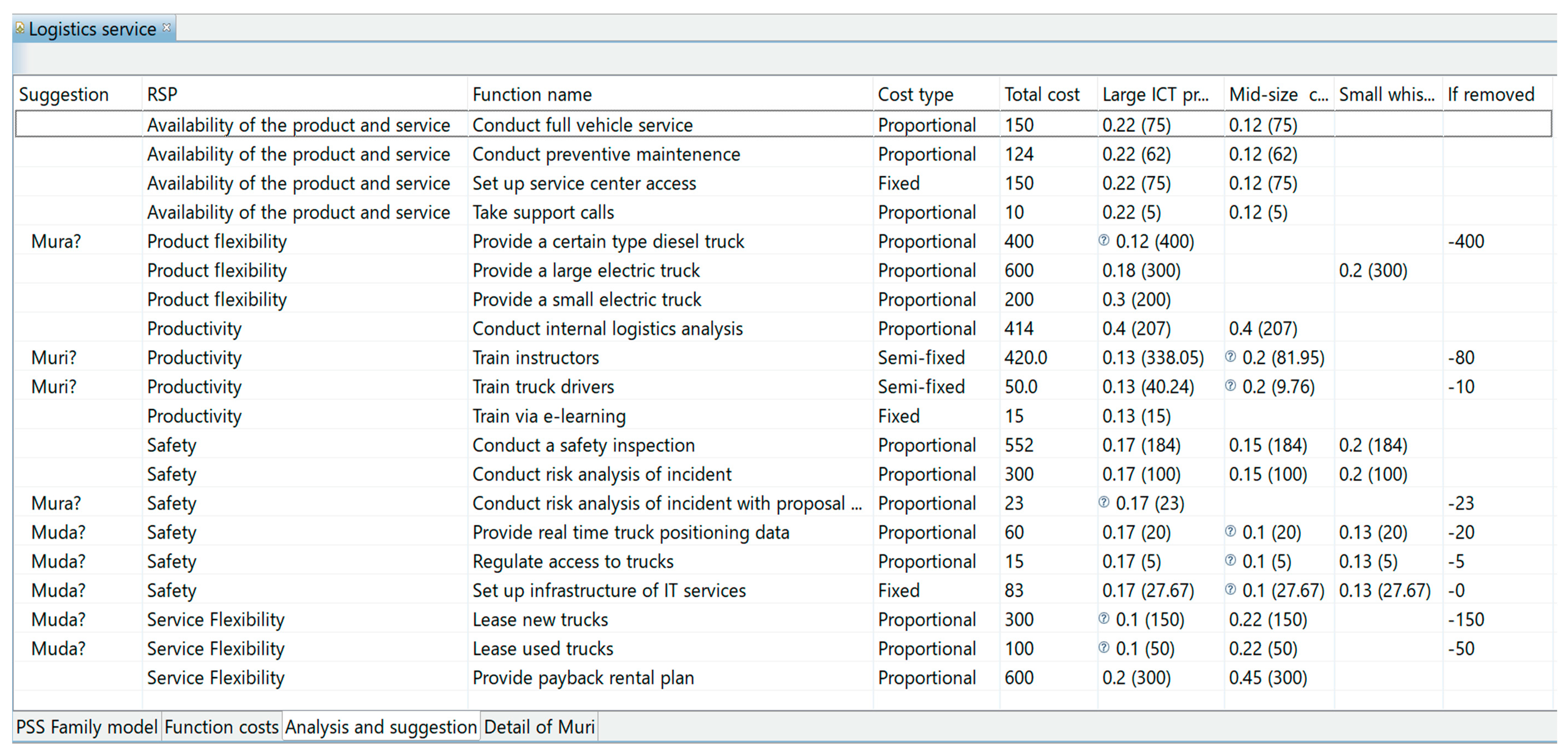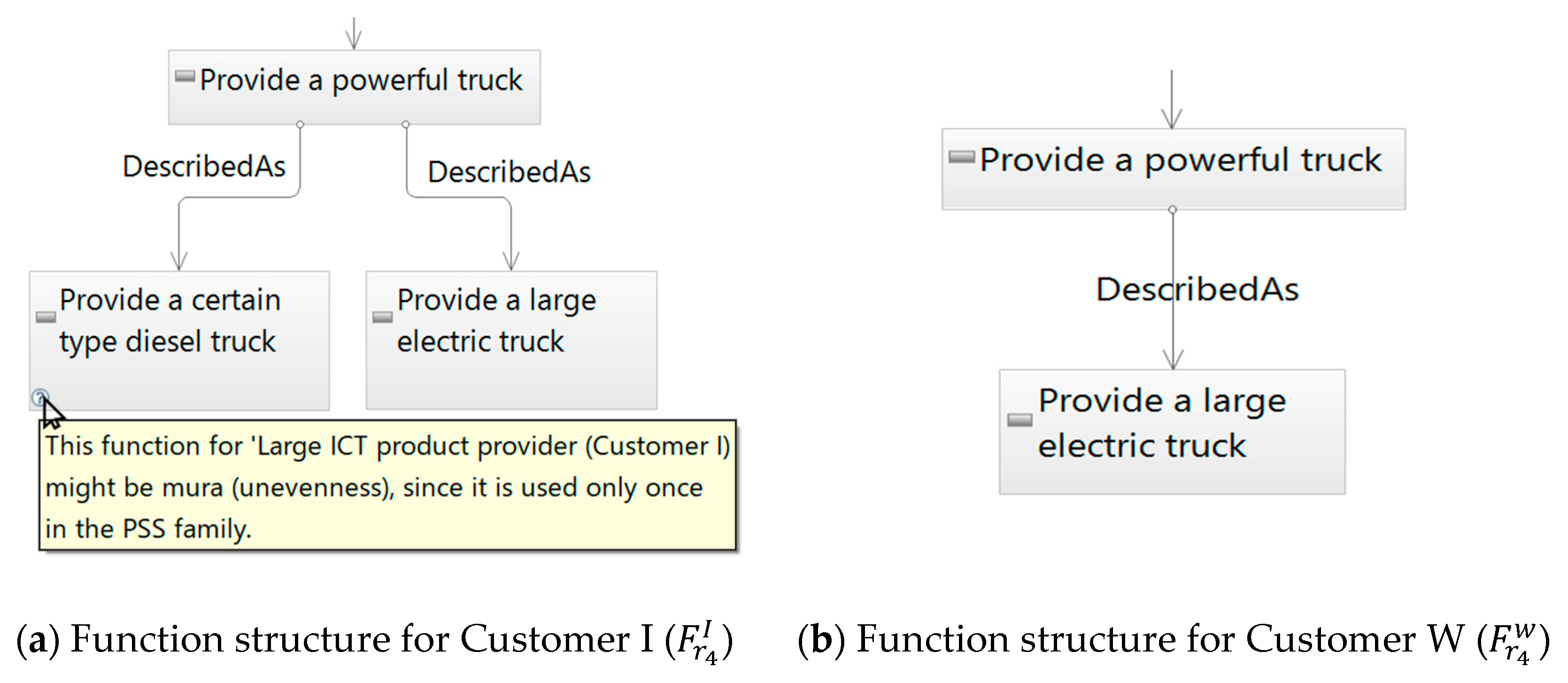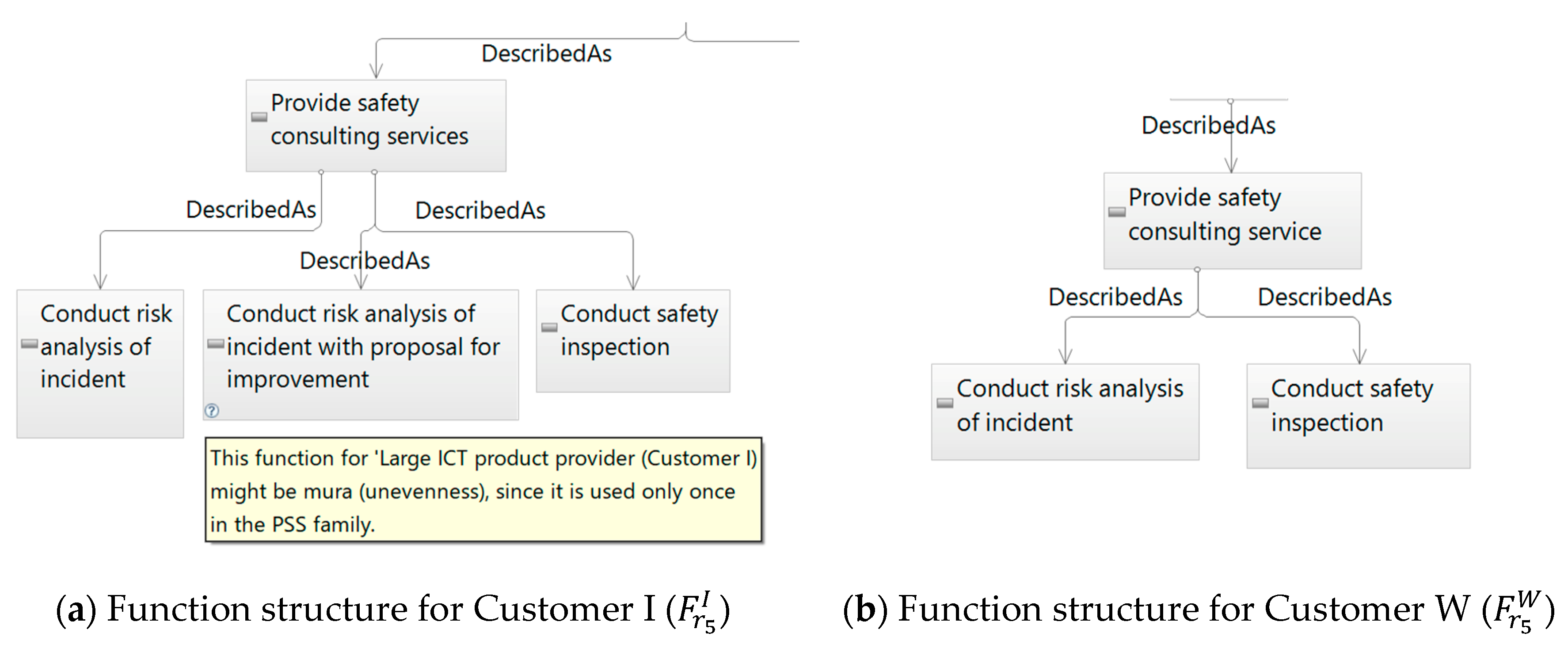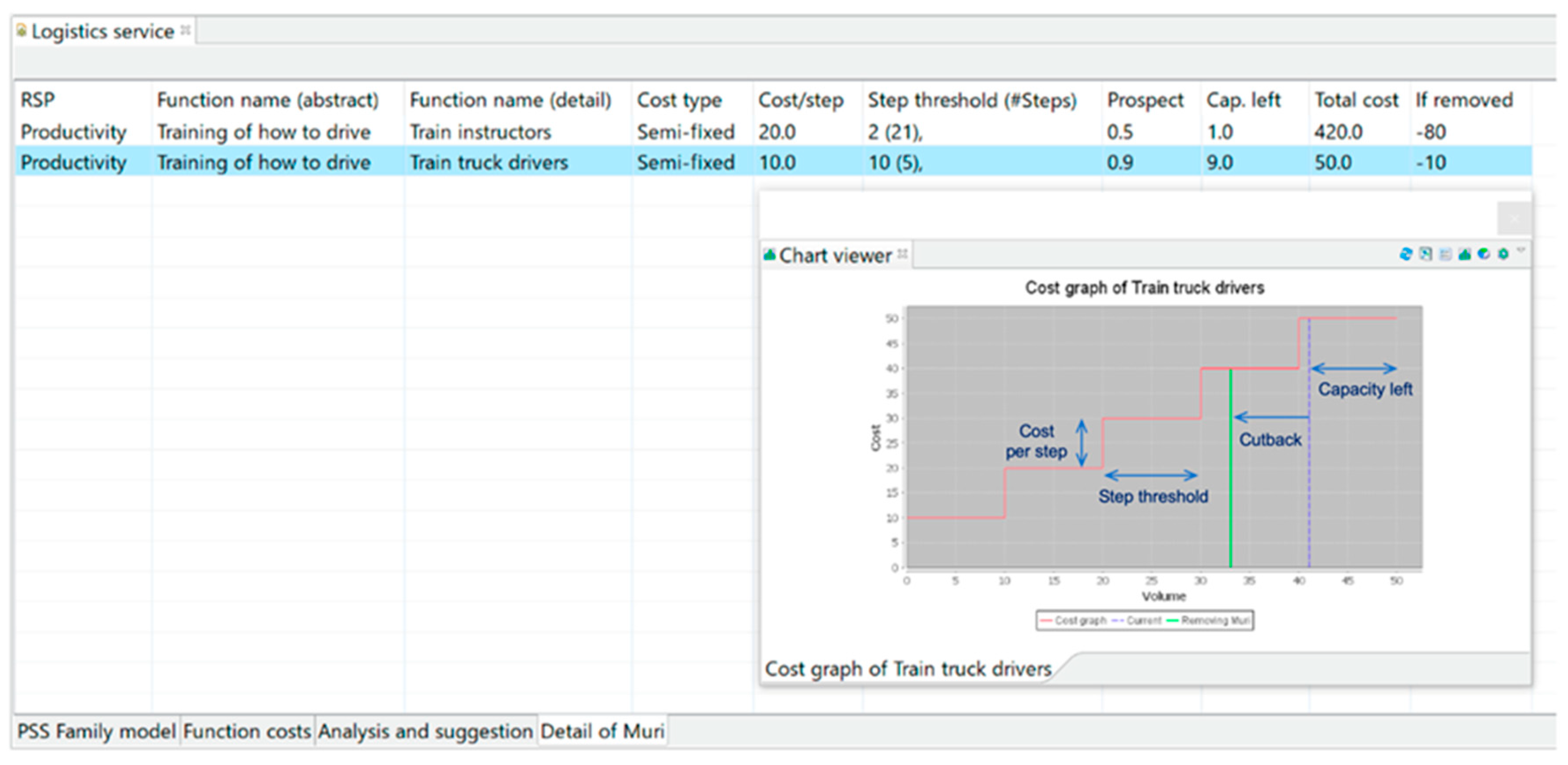1. Introduction
To maintain competitiveness in the global market, many companies strive to provide high added value. To add value, it is often imperative for a firm to address individual customer needs and wants, and then design and deliver customized offerings by introducing variety in design [
1]. This trend can be widely seen in industry and has been gaining more attention partly owing to increased connectivity with products and end users [
2]. But, increasing variety does not always lead to enhanced economic performance [
3]: increased variety in products and processes leads to increased complexity and then may end up with decreased competitiveness [
4]. To avoid this situation, it is effective to holistically customize a whole group of various products: product family design [
5,
6] is a major means to this end. Concerning environmental sustainability, the customization of products may or may not entail increased environmental loads and, hence, is an interesting issue.
In relation to customization, industries face a trend of servitization [
7]: in today’s manufacturing industry, numerous companies’ business offerings have become an integration of physical products and services. Here, “service” includes operation, maintenance, repair, upgrade, take-back, refurbishing, remanufacturing, and consultation. Providing services together with products can be an efficient means for the customization of products [
8]. This trend has been attracting the attention of a wide range of industries [
9] and academia for the last two decades [
10]. These two characteristics of offerings—customized and including service—lead companies to be interested in the customization of PSSs [
11,
12].
PSS family design is a highly challenging task in design and management because of its high complexity; its design space is enlarged as a design object containing both products and services aiming for multiple customer segments. Further, changes in customer needs over time need to be managed. Namely, many dimensions need to be incorporated for improving the entire PSS family, which is not systematically implemented in industry according to literature [
5,
12,
13]. This high complexity makes computer support for PSS family design effective and promising. Regarding computer support for customizing PSSs, to date, a few models and methods have been reported in the literature [
14]. However, virtually no computer tools for operationalizing these models or methods are available. This prevents a firm from even effectively and efficiently customizing PSSs, e.g., with a short lead time, which hinders the realization of high added value. This problem, considering the two industrial trends mentioned above, is expected to become even more conspicuous in the future.
Therefore, this study set out to propose a formal model for PSS families, a practical method for PSS family design, and a computer support tool that semi-automates the entire method by incorporating input from designers on a company’s strategies. Instead of PSS customization, PSS family design will be targeted since it aims to improve the entire set of offerings holistically. Also, the method will build upon lean principles [
15,
16]. The method and tool would be academically innovative as well as practically useful by enabling companies to design offerings with a more holistic view and more efficiently. To do so, the design object model and, in part, the method were implemented as an add-on to existing CAD software for PSS design. The entire software package was verified by being applied to an industrial case of customizing PSSs in the logistics sector.
The remainder of this article is laid out as follows.
Section 2 explains the related work and research motivation, followed by the research approach and procedure described in
Section 3. Then,
Section 4 proposes a formal and comprehensive model and a method for PSS family design, and also describes the implementation.
Section 5 describes the application of the model, the method, and the implemented tool to the industrial case. Finally,
Section 6 discusses the results, and
Section 7 concludes the paper.
2. Related Work and Research Motivation
PSSs have been heralded as one of the most effective instruments for moving society towards a resource-efficient, circular economy [
17]. Service activity is increasingly incorporated into the design space, which has traditionally been the domain of physical products in the manufacturing industries. In response to the trend toward offering services in the manufacturing industry, several models [
18,
19] and methods [
20,
21] for the design and management of PSSs have been proposed; see reviews of PSS design [
8,
22,
23]. Only a few examples of software for the design of PSSs were found, even at the research level: a service CAD integrated with a lifecycle simulator [
24], a service CAD called “Service Explorer” [
25,
26], a support system named PSS-CAD [
27], and a modelling tool for PSS Engineering [
19]. Implemented and used effectively in practice, these tools will be powerful for enhanced transparency and sharing information across different departments of a PSS provider, and thereby contribute to solve a major challenge of PSS design, that is, making decisions not in silos but globally [
28].
For customization of either physical products or services, different models, methods, and tools have been reported in the extant literature [
12]. For product customization, a generic customization process based on customization problem-solving situations has been proposed [
29]. Service customization has also been tackled, although it is not yet as mature as product customization. For example, software-based service customization models have been developed [
30]. Concerning environmental sustainability, the question of the environmental consequences of customization has been asked [
31]. Positive factors such as the reduction of unrequired components can be raised [
32], while a higher variety of components could lead to more resource consumption [
33]. Analysis of customization in the fashion sector reported decisional areas that included supplier selection and manufacturing defects [
34]. The impact of customization on environmental impact, however, is still an open question.
A major key to successful customization is the degree of customization in the entire group of design objects. The concept of mass customization (MC) [
35,
36], which is already prevalent throughout industry, emerged to address this challenge by being positioned between the mass production and individualized production. For instance, an information system for enabling agile interaction between companies and customers for MC was suggested [
37]. More directly, product family design was researched [
5,
6] aiming to answer the question on customization degree: For instance, a model named the “product family architecture” and its associated methods were developed [
38]. A method to solve the product family design problem with selecting a product platform has been developed [
39]. These elegant methods are highly useful for optimization when the entire set of products at a point in time is informed to, and under control of, a decision maker. However, companies in reality suffer from product proliferation partly resulting from more ad-hoc customization [
40,
41,
42]. Several hands-on strategies to reduce product proliferation have been recommended, including use of a cross-functional team to prune off unimportant variants and implementation of effective product withdrawal strategies [
40]. Here, PSS providers have an additional opportunity to reduce the proliferation by exchanging products with services. This implies advantages of PSS family design, for which a systematic method is not found in the literature [
5,
12,
13].
Lean principles [
15,
16] are highly related to family design in a number of ways [
43,
44]. Lean principles have also been analyzed in terms of their environmental implications in the literature. The lean and green paradigms overlap each other in, e.g., waste reduction [
45]. Lean operations could result in sustainability outcomes, including environmental ones [
46]. But, not all lean interventions result in environmental gains, as reported in tactical supply chain planning [
47]. These variant outcomes are natural since their goals and scopes are different [
48] (e.g., lean does not necessarily require the product lifecycle perspective). However, lean principles have the potential to guide family design towards decreased environmental loads by eliminating, e.g.,
muda, that is, what is unnecessary. Further, considering industrial implementation of the sustainability aspect, lean has pragmatic advantages. It is widespread in industry and embedded in its many core businesses. The green concept may come as a natural extension of lean in industrial practice [
45], and synergetic effects between the two are expected [
49].
Lean principles have been applied to PSS research as well. For instance, Mourtzis et al. [
50] proposed a methodology for producing leaner PSS offerings on both process and factory levels, by combining real-time monitoring and correlation analysis with lean principles. Elnadi et al. [
51] proposed how to assess leanness of manufacturers’ process to provide PSSs without a concrete support for designing PSSs. Resta et al. [
52] proposed a theoretical framework for lean operations focusing on product-oriented PSSs: one of the 12 characteristics in the framework concerns product/service range and points out the importance of standardized yet customizable products with a variety of choices of supporting services (also aimed for standardization). Mourtzis et al. [
53] proposed a framework for sentiment analysis on the data from manufacturing processes and customer feedbacks together with a set of lean rules for PSS including design aspects that aims to reduce wastes, among others, waiting; e.g., use standardized components. Pezzotta et al. [
21] proposed a PSS engineering methodology linked with lean rules on a highly abstract level. The last three papers at least partially addressed design aspects but are limited in providing a concrete support for conceptual PSS design where a higher degree of freedom is available and
exchangeability between products and services [
54] can be used.
Based on the literature briefly reviewed above, this research tackles PSS family design, which is an open research topic [
12] and aims to fill the lack of a practical method and tool. Because of its openness to the topic, high-level principles are adopted and borrowed from lean to realize far-reaching effects. In addition to PSSs’ potential for positive impacts on the environment, the commonality of lean and green is expected to guide customization to arrive at decreased environmental impacts.
3. Research Method
This research builds upon different categories of existing research in terms of the design object and design activity, as depicted in
Figure 1, in light of their usefulness and feasibility. The use of an existing CAD tool for PSSs is nominated based on its potential and is adopted for this research (indicated by (a) in
Figure 1). Rather than developing the model and tool from scratch, the authors instead took advantage of existing insights as much as possible. Literature related to customization, which covers both product and service customization, was utilized (see (b) in
Figure 1).
Service Explorer was found suitable as a base for the development because of its features for modeling and earlier thorough validation: The latest architecture [
25] was built using the eclipse modeling framework (EMF) and graphical modeling framework (GMF), which help to define a structured meta-model for each domain and generate source codes with high operability from the meta-model in the Java programming language. Service Explorer has a hierarchical modeling scheme of functions ranging from means functions that meet with customer requirements and end functions embodied by products and human elements. Parameter constraints have also been introduced to Service Explorer so that the software can detect and resolve conflicts during the process of designing integrated solutions [
55]. This article adapts the modeling method implemented for Service Explorer as a basis for the customization of PSS. The details are explained in
Section 4.
This research approach was then transformed into a research procedure consisting of three phases, shown in
Figure 2. First, in the model and method development, a comprehensive model is synthesized, incorporating the model for designing PSSs from the literature as a base and the useful features extracted from the insights for customization from the literature. Second, in the implementation, a comprehensive model for customizing PSSs is implemented in software building upon the existing Service Explorer. Third, in the verification, the method and the model, implemented in software, are verified in terms of the soundness of their logic and data structure. In addition, an industrial example, based on public data sources from, e.g., companies’ brochures, websites, and scientific publications, is examined to verify the method and the model and to illustrate its relevance to practical applications.
